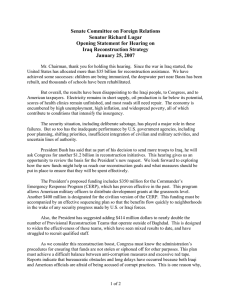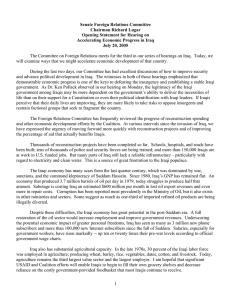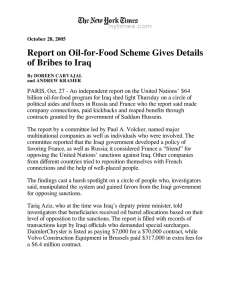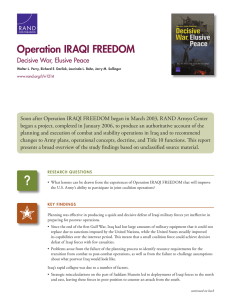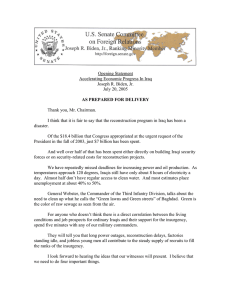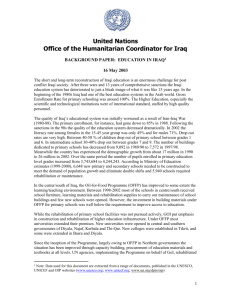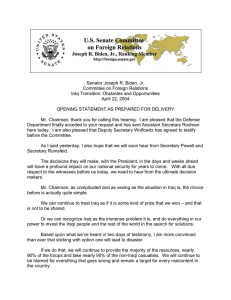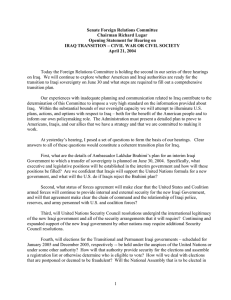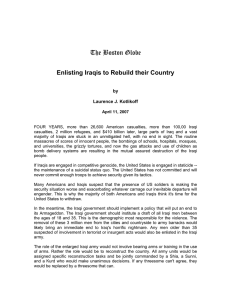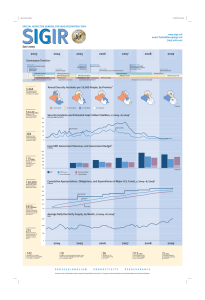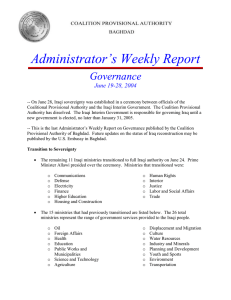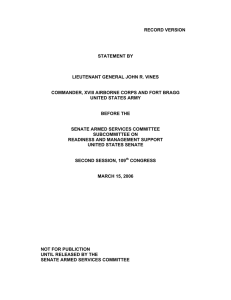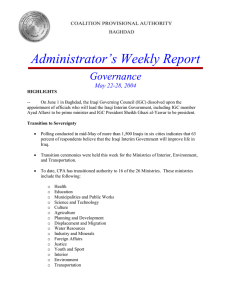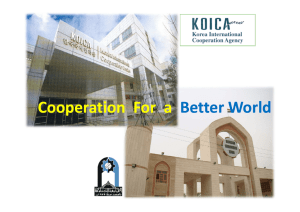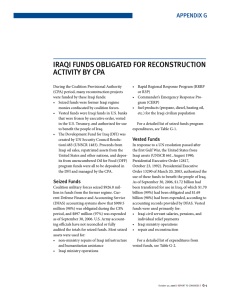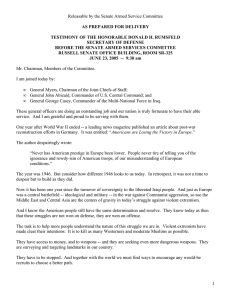Senate Committee on Foreign Relations Chairman Richard G. Lugar
advertisement
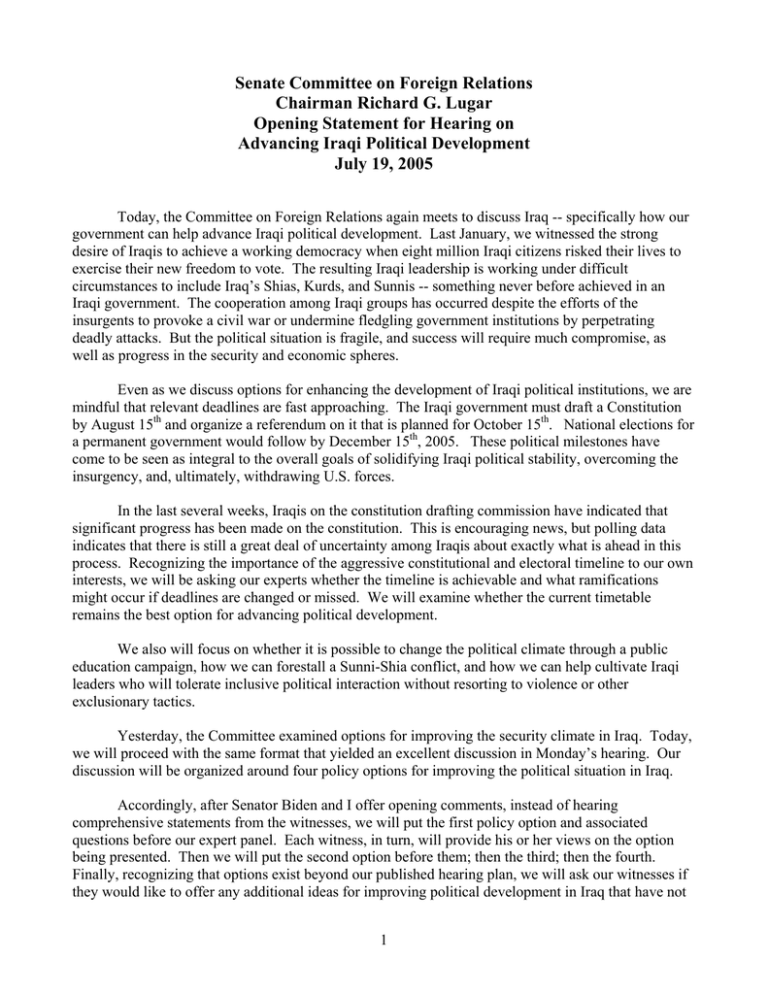
Senate Committee on Foreign Relations Chairman Richard G. Lugar Opening Statement for Hearing on Advancing Iraqi Political Development July 19, 2005 Today, the Committee on Foreign Relations again meets to discuss Iraq -- specifically how our government can help advance Iraqi political development. Last January, we witnessed the strong desire of Iraqis to achieve a working democracy when eight million Iraqi citizens risked their lives to exercise their new freedom to vote. The resulting Iraqi leadership is working under difficult circumstances to include Iraq’s Shias, Kurds, and Sunnis -- something never before achieved in an Iraqi government. The cooperation among Iraqi groups has occurred despite the efforts of the insurgents to provoke a civil war or undermine fledgling government institutions by perpetrating deadly attacks. But the political situation is fragile, and success will require much compromise, as well as progress in the security and economic spheres. Even as we discuss options for enhancing the development of Iraqi political institutions, we are mindful that relevant deadlines are fast approaching. The Iraqi government must draft a Constitution by August 15th and organize a referendum on it that is planned for October 15th. National elections for a permanent government would follow by December 15th, 2005. These political milestones have come to be seen as integral to the overall goals of solidifying Iraqi political stability, overcoming the insurgency, and, ultimately, withdrawing U.S. forces. In the last several weeks, Iraqis on the constitution drafting commission have indicated that significant progress has been made on the constitution. This is encouraging news, but polling data indicates that there is still a great deal of uncertainty among Iraqis about exactly what is ahead in this process. Recognizing the importance of the aggressive constitutional and electoral timeline to our own interests, we will be asking our experts whether the timeline is achievable and what ramifications might occur if deadlines are changed or missed. We will examine whether the current timetable remains the best option for advancing political development. We also will focus on whether it is possible to change the political climate through a public education campaign, how we can forestall a Sunni-Shia conflict, and how we can help cultivate Iraqi leaders who will tolerate inclusive political interaction without resorting to violence or other exclusionary tactics. Yesterday, the Committee examined options for improving the security climate in Iraq. Today, we will proceed with the same format that yielded an excellent discussion in Monday’s hearing. Our discussion will be organized around four policy options for improving the political situation in Iraq. Accordingly, after Senator Biden and I offer opening comments, instead of hearing comprehensive statements from the witnesses, we will put the first policy option and associated questions before our expert panel. Each witness, in turn, will provide his or her views on the option being presented. Then we will put the second option before them; then the third; then the fourth. Finally, recognizing that options exist beyond our published hearing plan, we will ask our witnesses if they would like to offer any additional ideas for improving political development in Iraq that have not 1 been discussed. After this sequence, Committee members will be recognized in turn to address questions to any member of the panel. My hope is that through the expertise of the witnesses and the questions of the members, we can achieve a systematic evaluation of the options presented for improving the Iraqi political situation. We are pleased to welcome a distinguished panel of experts to help us with our inquiry. Dr. Phebe Marr is a Senior Fellow at the United States Institute of Peace. She has been a valuable advisor to our Committee on matters pertaining to Iraq, and she has testified before us on many occasions. Dr. Noah Feldman, who has also testified before us previously, is a Professor of Law at New York University. In addition to his academic work, he has advised the Coalition Provisional Authority on Constitutional law issues. Judy Van Rest, is the Executive Vice President for the International Republican Institute. From April 2003 to July 2004, she served as Senior Advisor for Governance and Director of Democratic Initiatives for the Coalition Provisional Authority. These experts have spent a great deal of time analyzing the Iraqi political situation, and we are grateful that we can draw on their experience and insights. ### 2



